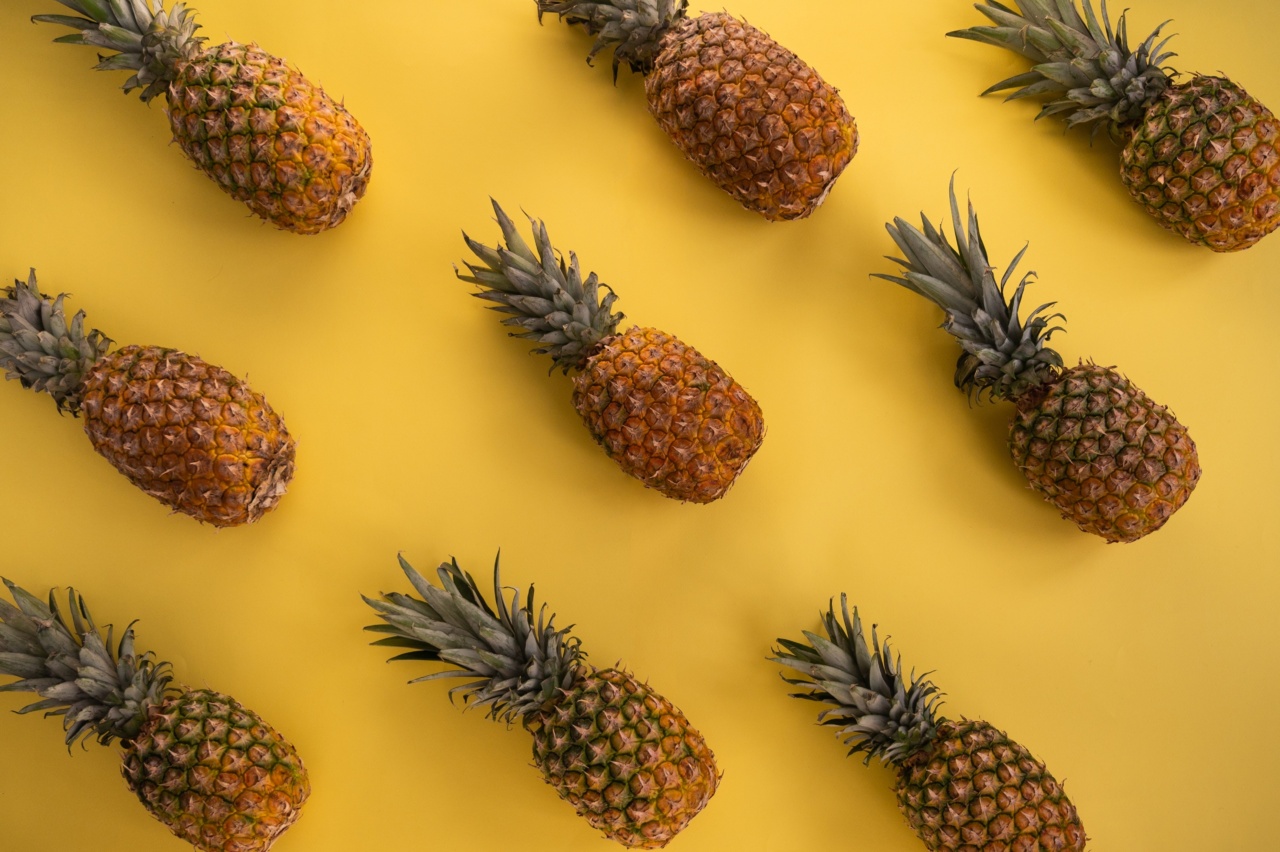Diarrhea is a common digestive problem that is characterized by loose, watery stools and can be accompanied by abdominal pain, cramping, and frequent bowel movements.
It is usually caused by a viral or bacterial infection, food intolerance, or certain medications. While medication and lifestyle changes can help relieve the symptoms of diarrhea, your diet plays a crucial role in treating the condition and promoting faster recovery.
1. Stay Hydrated
Diarrhea can lead to dehydration due to the excessive loss of fluids from the body. It is important to increase your fluid intake to prevent dehydration. Water, clear broths, and herbal teas can help replace lost fluids.
Avoid caffeinated and alcoholic beverages as they can worsen dehydration.
2. Consume Electrolytes
When you have diarrhea, your body loses electrolytes such as sodium, potassium, and chloride. Consuming foods rich in electrolytes can help maintain the balance of these essential minerals in your body.
Include foods like bananas, potatoes, yogurt, and coconut water in your diet to replenish electrolytes.
3. BRAT Diet
The BRAT diet (Bananas, Rice, Applesauce, and Toast) is often recommended for people with diarrhea as these foods are easy to digest and can help firm up the stool.
However, this diet should only be followed for a short duration as it lacks certain nutrients and may not provide sufficient calories.
4. Probiotics
Probiotics are beneficial bacteria that promote a healthy gut. They can help restore the balance of gut flora and alleviate diarrhea. Foods like yogurt, kefir, sauerkraut, and kimchi are rich in natural probiotics.
You can also take probiotic supplements after consulting with your healthcare provider.
5. Avoid Trigger Foods
Some foods can worsen diarrhea symptoms and should be avoided until your digestive system stabilizes. Spicy and greasy foods, caffeine, dairy products, high-fiber foods, and artificial sweeteners are known to trigger diarrhea in many individuals.
It is important to identify your trigger foods and eliminate them from your diet.
6. Stay Away from Sugary Foods
Highly processed and sugary foods can worsen diarrhea and prolong the recovery process. They can irritate the digestive system and increase stool frequency.
Opt for natural sugars found in fruits instead of consuming desserts, candies, and sweetened beverages.
7. Include Mild, Bland Foods
When your digestive system is sensitive and inflamed, it is essential to include mild and bland foods in your diet. These gentle foods are easy to digest and do not put additional stress on your gut.
Some examples include boiled potatoes, steamed chicken or fish, white rice, and cooked vegetables.
8. Drink Chamomile Tea
Chamomile tea has anti-inflammatory properties and can help soothe the inflamed intestinal lining. It also acts as a mild sedative, which can alleviate any stress or anxiety that may exacerbate diarrhea.
Sip on chamomile tea 2-3 times a day to reduce diarrhea symptoms.
9. Stay Away from Dairy
Dairy products can aggravate diarrhea symptoms, especially if you have lactose intolerance. Lactose, the sugar present in milk and dairy products, can worsen diarrhea and cause gas and bloating.
Switch to lactose-free alternatives like almond milk, coconut milk, or lactose-free dairy products.
10. Gradually Reintroduce Solid Foods
Once your diarrhea symptoms start to improve, you can gradually reintroduce solid foods into your diet. Start with small portions of easily digestible foods such as cooked cereals, bread, and steamed vegetables.
Avoid large meals or foods that are difficult to digest until your digestive system fully recovers.
By following these dietary measures, you can effectively treat diarrhea and promote a quicker recovery.
However, if your symptoms persist or worsen, it is important to seek medical attention as there may be an underlying condition that needs to be addressed.






























